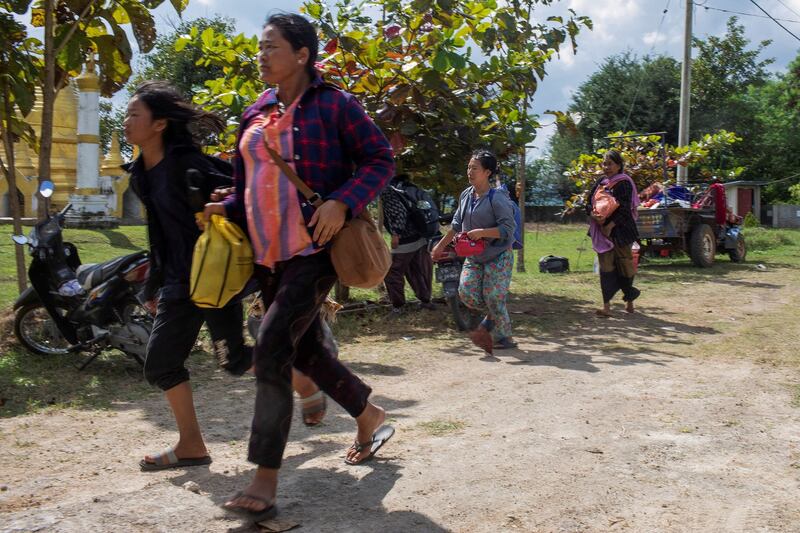Food and medicine shortages are putting nearly 500 prisoners in eastern Myanmar’s Kayah State at risk as fighting between the military junta and resistance forces has hindered the transport of supplies into the capital of Loikaw, aid workers said.
Ethnic Karenni forces and anti-junta People’s Defense Force paramilitaries began a coordinated offensive against the military on Nov. 11 in an attack that’s been dubbed “Operation 1111.”
Intense fighting has taken place near Loikaw Prison over the last week as food and medicine supplies continue to drop, said Thike Tun Oo, a member of the leading committee of the Political Prisoners Network-Myanmar.
Basic supplies at the prison are typically stockpiled for about three months, he said.
“The military troops are defending the prison against the attacks of joint forces who are holding back on all-out attacks out of consideration for the prisoners,” said Khu Nye Reh, the spokesman of the Karenni Military Information Center.
“Family members dare not visit prisoners due to security concerns,” he said. “In this circumstance, the prisoners will receive only a very small quota of food. Just enough for survival.”

Karenni forces have suspended attempts at taking control of the prison, but continue to occupy 85 percent of Loikaw, according to Col. Phone Naing, the Karenni Army’s adjutant general.
The prison’s 500 inmates include 140 pro-democracy activists and other prisoners of conscience.
Human shield worries
“Whether the prison is attacked or not, food supplies and fuel cannot be taken into the city due to the ongoing armed conflict,” said Banyar, the founder of the Karenni Human Rights Group.
“The prisoners will also not receive regular meals and medicines. Patients in the prison cannot be taken out for medical treatments,” he said. “They have lost their human rights.”
He added that he’s worried that junta troops will force prisoners to wear military uniforms if they attempt to relocate them or use them as cover.
Junta officials haven’t made any statements about the situation of inmates at Loikaw Prison.
Radio Free Asia attempted to contact the office of the deputy director-general of the Prison Department, as well as junta spokesman Maj. Gen. Zaw Min Tun, but no one responded to messages.
Fighting between Karenni forces and junta troops near the prison in January 2022 also caused food shortages.
“We were tightly confined in a prison cell. Food rations were significantly reduced,” a member of the Karenni Political Prisoners Association and a former Loikaw Prison inmate recalled to RFA on Wednesday.
“We even had a hard time finding salt to eat,” he said. “We had no chance to avoid heavy weapon shelling. While I was in this prison, some 120 mm mortars and RPG attacks hit the prison. Our lives were at risk at that time.”
The former prisoner also expressed concern for the security of prisoners currently inside the facility.
Translated by Aung Naing. Edited by Matt Reed and Malcolm Foster .

